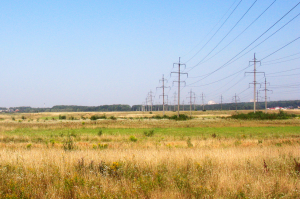Latest News
More than 1,200,000 acres of land grabbed in Afghanistan

Afghanistan Freedom House Research Institute reveals a shocking statistic of land grabbing by powerful and a number of institutions in several provinces of Afghanistan.
The recent report indicates that around 1,297,000 acres of land have been grabbed so far from all across the country.
The institute says that there is no secure place in Afghanistan and most of the lands have been grabbed during Hamid Karzai’s governance.
The statistic of 1,297,000 grabbed lands in 34 provinces of Afghanistan is as follow:
986334 Acres of land grabbed by various individuals
262537 Acres of land grabbed by owners of 355 residential towns
30829 Acres of land grabbed by 139 governmental institutions
“More than 1, 207,000 acres of land have been grabbed in Afghanistan so far,” said Shah Hussain Murtazawi, member of Freedom House Research Institute.
The report shows that the most of grabbed lands are in Kabul, Herat, Balkh, Kandahar, Nangarhar, Kunduz, Kapisa, Baghlan, Takhar, Nemroz, Khost, Logar and Ghazni.
194756 acres of land in Balkh
70698 acres of land in Heart
30584 acres of land in Nangarhar
25990 acres of land in Kabul
Findings of the report shows that around 10,000 cases over land grabbing are under claims and were submitted to the government’s general cases administration.
Meanwhile, in a country where 80 percent of the population relies on agriculture, the Afghanistan Land Authority has recorded complaints of 240,000 hectares of land usurped in the last decade.
Land grabbing has emerged as the most ominous phenomenon in Afghanistan in recent years. “Weak and inconsistent land management, endemic corruption and insecurity have permitted opportunistic land grabs by powerful elites, which local populations refer to as the ‘land mafia,’” says a report by UN Environment Programme (UNEP). “Thus far, the government has demonstrated little capacity or willingness to address land grabbing in a systematic way,” adds the report.
The practice of land grabbing has become worryingly rampant especially in rural areas where warlords continue to yield considerable clout.

Latest News
Iranian official: Only vulnerable points of Afghanistan’s border will be walled and fenced
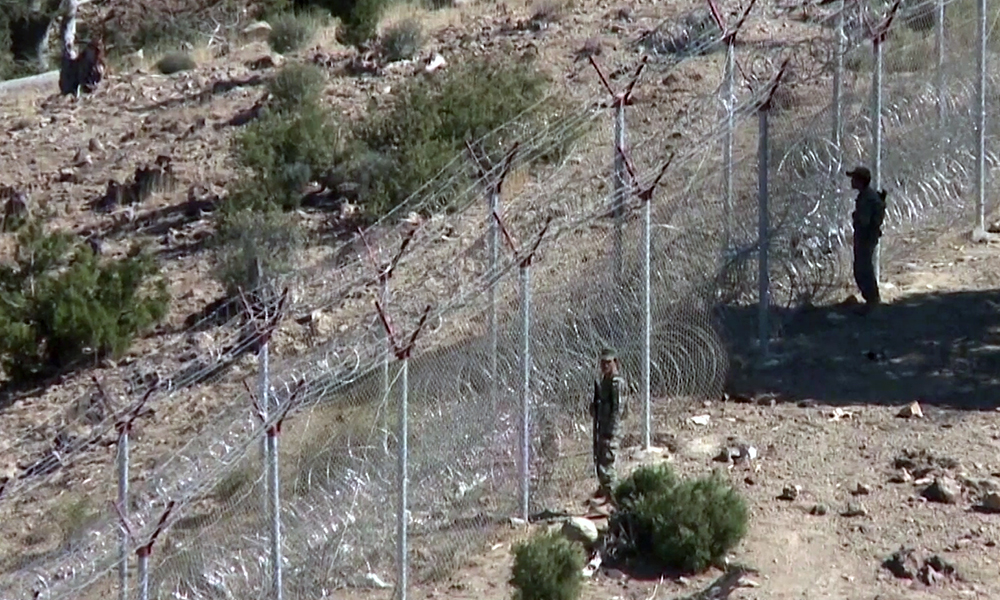
An Iranian security official has said that the entire border of Iran with Afghanistan will not be fenced, rather barriers will be created only at vulnerable points.
Iranian army has announced that the plan to create barriers at the border with a four-meter concrete wall, barbed wire and fence will be implemented within three years.
“In some northwestern and eastern borders, there are threats from the other side of the borders that we are countering,” said Qassem Rezaei, Iran’s deputy police commander.
He added that drug trafficking, human trafficking, and even terrorist infiltration may take place through these borders.
Meanwhile, the Minister of Interior of Iran Ahmad Vahidi has announced that over 1.3 million illegal foreign nationals have returned to their country in the past year.
He added that illegal citizens should leave Iran as they are not allowed to stay.
Latest News
Hanafi meets WHO regional director, stresses need for cooperation
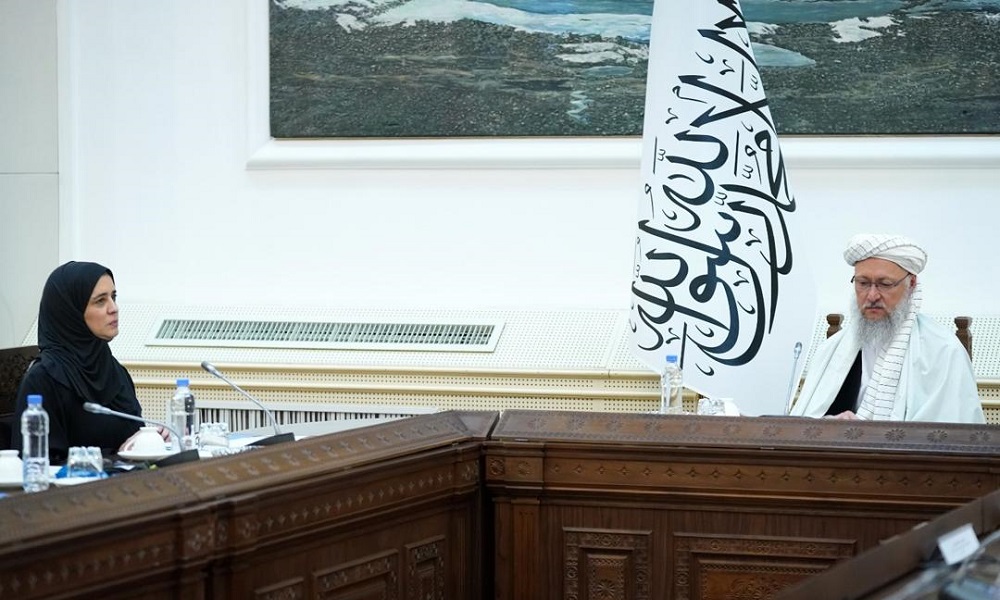
Deputy Prime Minister for Administrative Affairs Abdul Salam Hanafi on Sunday met with WHO Regional Director for the Eastern Mediterranean, Hanan Balkhy, and called for the organization’s cooperation including in the establishment of clinics in remote areas and training of specialists.
According to a statement released by his office, Hanafi pointed out that since the Islamic Emirate in Afghanistan regained power, there has been progress in various fields, including the fight against drug production and trafficking, the roundup and treatment of drug addicts, the eradication of corruption and nationwide security.
He asked the WHO to hand over Afghanistan’s seat to the representative of the Islamic Emirate and restore Afghanistan’s membership in meetings of the executive board and leadership meetings of the Mediterranean region.
Hanafi also called for the cooperation of international organizations in providing alternative livelihoods for poppy farmers and in providing assistance to flood victims.
While stressing that the eradication of polio is one of the priorities of the Islamic Emirate, Hanafi asked the WHO to activate polio diagnosis laboratories and supply vaccines, establish a cancer treatment center, prevent malnutrition among children and provide safe drinking water.
According to the statement, WHO official Balkhy said in the meeting that the health issue is non-political and one of the priorities of the organization.
She pointed to the achievements of the Islamic Emirate in various fields and expressed hope that better conditions will be provided for Afghans in the health and education sector.
Balkhy explained that WHO, together with other international organizations and the European Union, has a three-year project that includes the establishment of health centers in different provinces of Afghanistan.
She also expressed her appreciation for the efforts of the Islamic Emirate in the fight against polio and added that she will discuss the issue of providing alternative livelihoods for Afghan farmers with the WHO and other relevant organizations.
Latest News
OIC summit urges IEA to respect girls’ right to education
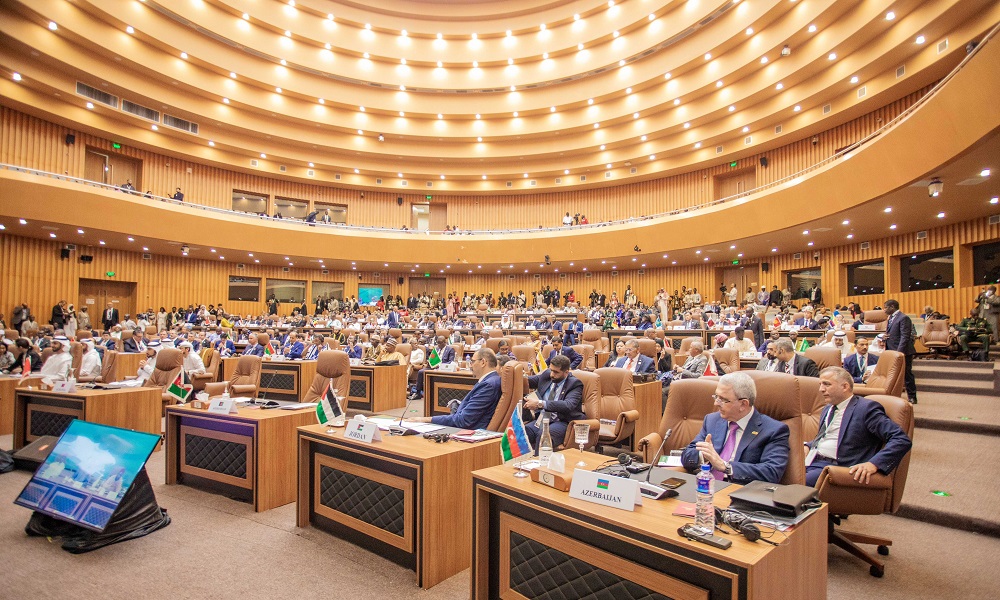
The 15th summit of the Organization of Islamic Cooperation (OIC) in Gambia on Sunday called on the Islamic Emirate of Afghanistan (IEA) to respect Afghan girls and women’s right to education and work.
In a declaration, OIC described the right to education and work as the fundamental rights of Afghan girls and women, and called for more communication with the IEA authorities on these issues.
Additionally, the participants emphasized the need for more efforts to address the challenges related to ethnic groups, drugs, terrorism, and social issues to ensure inclusive governance and sustainable peace and stability in Afghanistan.
“We also emphasize the need to make more efforts to address the challenges associated with ethnic groups, terrorism, drugs and social aspects for inclusive governance to achieve sustainable stability,” the declaration said.
Delegations from the 57 OIC member states attended the conference, organized by the Organization of Islamic Cooperation under the theme “Enhancing unity and solidarity through dialogue for sustainable development.”.
The summit was also attended by an IEA delegation.
-

 Sport5 days ago
Sport5 days agoSorkh Poshan Khafi and Khadim FC winners in their ACL matches
-
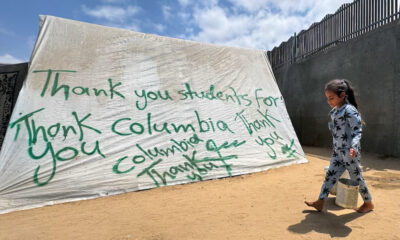
 World4 days ago
World4 days agoWhy Palestinians can count on American students but not Arab allies to protest
-
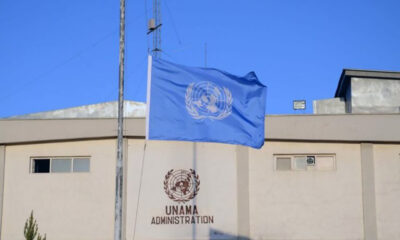
 Latest News5 days ago
Latest News5 days agoUNAMA issues latest rights report, notes ongoing challenges for women, girls and media
-

 Sport4 days ago
Sport4 days agoAbu Muslim and Attack Energy win in ACL matches
-

 Sport5 days ago
Sport5 days agoBairstow, Rossouw help Punjab beat Chennai in IPL
-

 Sport5 days ago
Sport5 days agoFour Afghans included in Refugee Olympic Team for Paris 2024
-
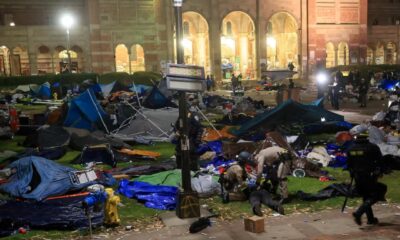
 World5 days ago
World5 days agoCalifornia police flatten pro-Palestinian camp at UCLA, arrest protesters
-

 Latest News5 days ago
Latest News5 days agoFive dead, 24 injured in traffic accident in Samangan

